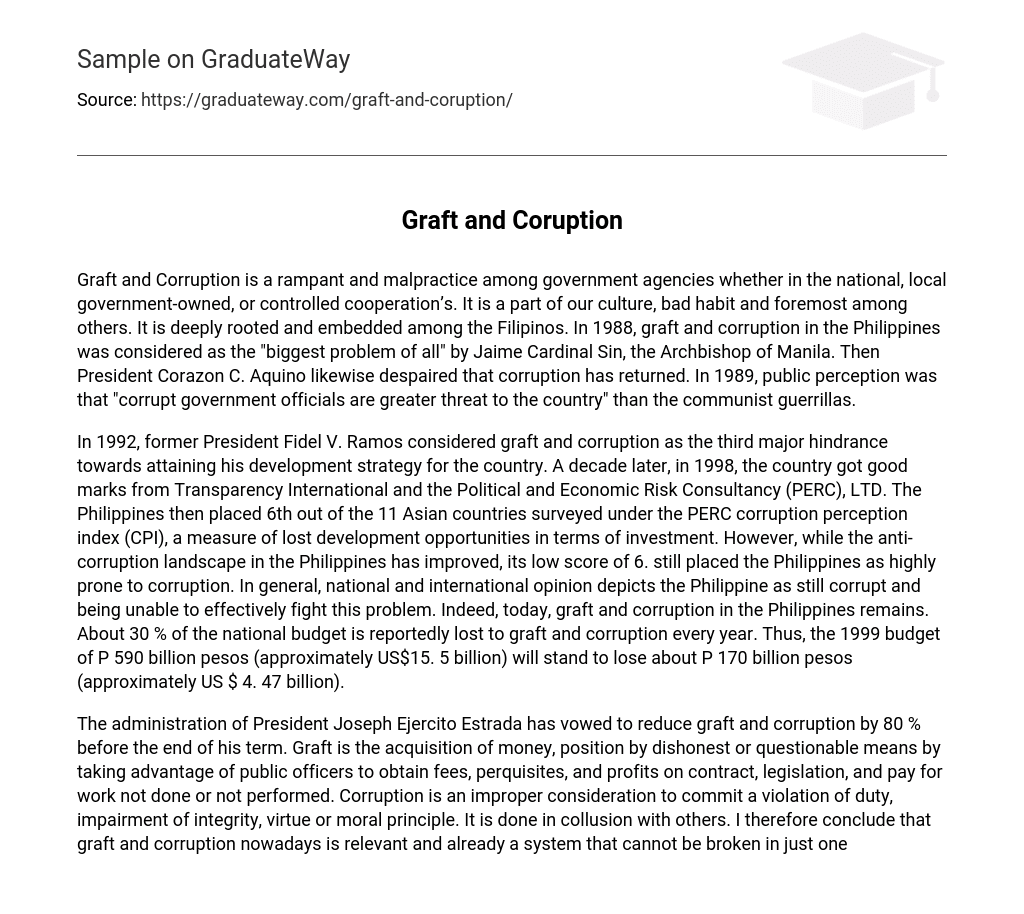Graft and Corruption is a rampant and malpractice among government agencies whether in the national, local government-owned, or controlled cooperation’s. It is a part of our culture, bad habit and foremost among others. It is deeply rooted and embedded among the Filipinos. In 1988, graft and corruption in the Philippines was considered as the “biggest problem of all” by Jaime Cardinal Sin, the Archbishop of Manila. Then President Corazon C. Aquino likewise despaired that corruption has returned. In 1989, public perception was that “corrupt government officials are greater threat to the country” than the communist guerrillas.
In 1992, former President Fidel V. Ramos considered graft and corruption as the third major hindrance towards attaining his development strategy for the country. A decade later, in 1998, the country got good marks from Transparency International and the Political and Economic Risk Consultancy (PERC), LTD. The Philippines then placed 6th out of the 11 Asian countries surveyed under the PERC corruption perception index (CPI), a measure of lost development opportunities in terms of investment. However, while the anti-corruption landscape in the Philippines has improved, its low score of 6. still placed the Philippines as highly prone to corruption. In general, national and international opinion depicts the Philippine as still corrupt and being unable to effectively fight this problem. Indeed, today, graft and corruption in the Philippines remains. About 30 % of the national budget is reportedly lost to graft and corruption every year. Thus, the 1999 budget of P 590 billion pesos (approximately US$15. 5 billion) will stand to lose about P 170 billion pesos (approximately US $ 4. 47 billion).
The administration of President Joseph Ejercito Estrada has vowed to reduce graft and corruption by 80 % before the end of his term. Graft is the acquisition of money, position by dishonest or questionable means by taking advantage of public officers to obtain fees, perquisites, and profits on contract, legislation, and pay for work not done or not performed. Corruption is an improper consideration to commit a violation of duty, impairment of integrity, virtue or moral principle. It is done in collusion with others. I therefore conclude that graft and corruption nowadays is relevant and already a system that cannot be broken in just one





